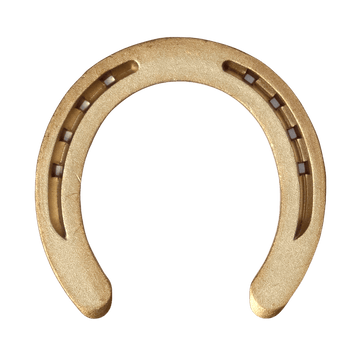Taking care of your dog’s health is a top priority for any pet owner. Holistic pet care, which combines conventional veterinary practices with natural remedies, is becoming increasingly popular among pet owners.
While traditional veterinary care is crucial for treating serious conditions, many dog owners are interested in natural remedies that can support their furry friends’ health.
This guide covers common ailments that dogs experience and offers natural treatments you can implement at home, along with essential precautions.
Common Ailments and Natural Remedies
1. Itchy Skin, Itchy Skin and Allergies
Understanding the Issue: Itchy skin can be caused by a variety of factors, including allergies, parasites, or environmental irritants. Symptoms often include excessive scratching, biting at the skin, or inflamed areas.
Consider using a healing spray for pets to provide targeted relief for inflamed areas, helping soothe the skin naturally.
Natural Remedies:
-
Oatmeal Baths: Colloidal oatmeal is well-known for its soothing properties. Adding it to a warm bath can help relieve itching and moisturize the skin. Simply grind plain oatmeal into a fine powder and sprinkle it into your dog’s bathwater. Let your dog soak for about 10-15 minutes for the best results.
-
Coconut Oil: This natural oil can be applied topically to soothe itchy skin and has antibacterial properties that may help with skin infections. It’s also beneficial for your dog’s coat health.
-
Herbal Tea Bags: Chamomile and green tea bags can be steeped, cooled, and applied to itchy areas. The tannins in the tea can help reduce inflammation.
-
Omega-3 Fatty Acids: Supplementing your dog’s diet with omega-3s can reduce inflammation and help alleviate itchy skin over time. Incorporating omega-3 fatty acids into your dog's diet can help reduce inflammation and alleviate itchy skin over time.
Veterinary Consultation: Always consult with your veterinarian before trying new treatments, especially if your dog’s itching persists. Identifying the root cause of the allergy is essential for effective treatment.
2. Digestive Issues
Understanding the Issue: Dogs can experience various digestive issues, including diarrhea, constipation, and general upset stomachs. These issues can stem from dietary changes, food intolerances, or stress.
Natural Remedies:
-
Canned Pumpkin: Plain canned pumpkin (not the spiced pie filling) is high in fiber and can help regulate your dog’s digestive system. It’s beneficial for both diarrhea and constipation.
-
Probiotics: Adding a probiotic supplement to your dog’s diet can help restore balance to their gut flora. Probiotics are especially useful after a course of antibiotics or during digestive upset. Supplementing your pet's diet with natural products like probiotics can enhance overall gut health and prevent digestive issues.
-
Peppermint Oil: Small amounts of peppermint oil can help soothe digestive issues. However, it’s crucial to consult your veterinarian for the correct dosage, as essential oils can be potent.
Dietary Considerations: Maintaining a balanced diet is vital for preventing digestive issues. Avoid sudden changes in diet, and ensure your dog is eating high-quality food tailored to their specific needs.
3. Ear and Eye Issues
Understanding the Issue: Most dogs can experience ear infections and eye issues due to allergies, foreign objects, or bacteria. Symptoms may include redness, discharge, and excessive scratching or rubbing. For skin irritations around the ears, an all-natural skin spray for dogs can provide a natural solution to help soothe inflamed skin.
Natural Remedies:
-
Ear Cleaning Products: Natural ear cleaning solutions can help manage ear debris and moisture. Look for products that are gentle and free from harsh chemicals.
-
Chamomile Tea: Chamomile can soothe inflammation and irritation. Brew chamomile tea, allow it to cool, and apply it to the affected area gently using a cotton ball.
-
Regular Maintenance: Keeping your dog’s ears clean and dry can prevent many issues. Regularly check their ears for wax buildup or debris.
Veterinary Consultation: Always consult with your veterinarian if you notice persistent discharge or odor, as these can indicate infections requiring medical treatment.
4. Joint Health and Mobility Issues
Understanding the Issue: Older dogs, as well as those engaged in high activity, may experience joint pain and mobility issues. Conditions like arthritis can significantly affect their quality of life.
Natural Remedies:
-
Glucosamine and Chondroitin: These supplements are known to support joint health and alleviate pain associated with arthritis. Consult your veterinarian for the appropriate dosage.
-
Turmeric: This powerful herb has anti-inflammatory properties and can be added to your dog's food. However, always consult your vet about the right dosage and whether it’s suitable for your dog.
-
Weight Management: Keeping your dog at a healthy weight reduces stress on their joints. Regular exercise tailored to their abilities will also support joint health.
Veterinary Consultation: If your dog shows signs of significant pain or mobility issues, it’s crucial to consult your veterinarian for a comprehensive evaluation and treatment plan.
5. Anxiety and Stress
Understanding the Issue: Many dogs experience anxiety, whether due to separation, loud noises, or changes in their environment. Stress can manifest in destructive behavior, excessive barking, or changes in appetite.
Natural Remedies:
-
Lavender: The calming properties of lavender can be beneficial for anxious dogs. Consider using lavender oil in a diffuser or applying diluted oil to your dog’s collar (always consult your vet first).
-
Exercise and Mental Stimulation: Regular physical activity and mental stimulation can help alleviate anxiety. Puzzle toys, training exercises, and regular walks can keep your dog engaged and reduce stress.
-
Calming Supplements: There are various natural calming supplements available that contain ingredients like chamomile and valerian root.
Veterinary Consultation: For severe anxiety, it’s essential to consult your veterinarian. They may recommend behavioral therapy or medication in conjunction with natural remedies.
Natural Remedies for Specific Ailments
1. Tailored Approaches for Each Ailment
When it comes to addressing specific ailments in pets, natural remedies can offer a tailored approach that complements conventional veterinary care.
For instance, herbal treatments like chamomile and calendula can be used to soothe itchy skin, while coconut oil and baking soda can help alleviate digestive issues.
By understanding the underlying causes of common pet ailments, pet owners can work with their veterinarians to develop a holistic treatment plan that incorporates natural remedies.
Using Natural Remedies Effectively
When to Use Natural Remedies
Natural remedies can be effective for mild ailments, but it’s crucial to recognize when professional veterinary care is necessary.
-
Use natural remedies for minor issues like mild itching, digestive upset, or anxiety.
-
Always consult your veterinarian before trying new remedies, especially if your dog has existing health conditions or is on medication.
-
Natural remedies should complement, not replace, traditional veterinary care.
Partnering with Your Veterinarian
-
A holistic approach to your dog’s health includes working closely with your veterinarian.
-
Your vet can help you identify the underlying causes of your pet’s ailments and recommend the best natural remedies and treatments. Your vet can help you identify the best natural pet remedies to complement traditional treatments and ensure your pet's overall well-being.
-
Keep your veterinarian informed about any natural remedies you wish to try, as some can interact with medications.
Frequently Asked Questions
-
What is holistic therapy for dogs?
-
Holistic therapy focuses on treating the whole animal, considering their physical, emotional, and environmental well-being. It includes both traditional and alternative treatments.
-
-
How to treat a sick dog at home naturally?
-
Monitor your dog's symptoms, provide a comfortable environment, and consult your veterinarian before using any home remedies.
-
-
What is the strongest natural antibiotic for dogs?
-
Natural antibiotics like honey, garlic, and certain herbal extracts have antimicrobial properties, but always consult your vet before using them.
-
-
How can I remove toxins from my dog naturally?
-
Providing a balanced diet, ensuring regular exercise, and keeping your dog hydrated can help eliminate toxins. Consult your veterinarian for more specific detox methods.
-
Top Natural Dog Treatments for Common Ailments Conclusion
A holistic approach to pet care emphasizes the importance of considering your dog's overall well-being, including diet, exercise, and mental stimulation. While natural remedies can effectively support your dog's health, they should be used thoughtfully and in consultation with your veterinarian.
For minor wounds or skin irritations, a wound spray for dogs offers a natural healing approach that supports recovery without harsh chemicals.
Always remember to monitor your dog's response to any new treatments and maintain open communication with your veterinarian to provide the best care possible.













